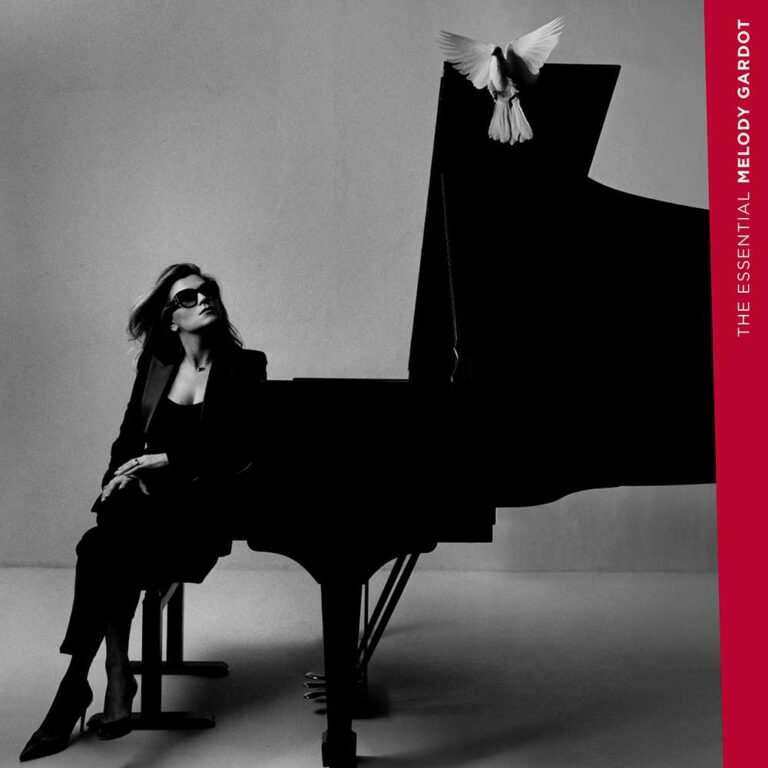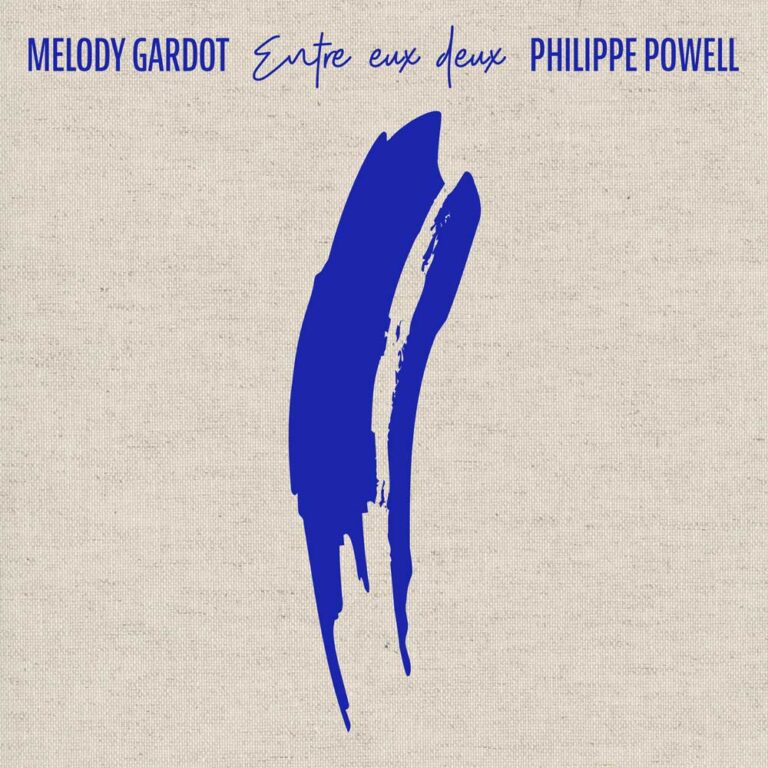Melody Gardot was a kid when she first heard jazz. The experience proved life-changing. “I couldn’t get enough of it,” the Paris-based singer-songwriter has said. “Jazz contained so much history, so many stories of people, places, times and struggles. It was emotional and soulful and a blast to play.”
Raised in New Jersey by her grandparents – her single mother, a photographer, was always travelling for work – she was always delving into a vinyl collection teeming with greats. Ella Fitzgerald, Billie Holiday, Nina Simone; Louis Armstrong, Duke Ellington, Cole Porter. Singers and bandleaders whose uncompromising originality inspired, helped her stick to her own. She sang in school choirs, and alongside her mother, who played guitar, and learned the techniques of classical piano so thoroughly that her teacher ended up teaching her improvisation as well.
By her mid-teens she was playing in piano bars. “I know what a jukebox feels like,” she’s said with characteristic dry humour. “I was purely there to entertain.”
Now with six studio albums under her snakeskin belt, Gardot has garnered an international reputation as an artist of style, sophistication and envelope-pushing reinvention. Having burst into view in 2007 with “Worriesome Heart”, a debut that showcased her silky, sultry voice and gave traditional jazz and blues the kiss of life, Gardot boldly changed tack on its 2010 follow-up, “My One and Only Thrill”. Produced by Larry Klein and featuring string arrangements by Vince Mendoza, the album’s mix of Latin rhythms, toe-tapping blues and heartfelt torch songs was nonetheless filed under jazz, and even won a Grammy for Best Contemporary Jazz Album.

Melody Gardot The Essential
Available to purchase from our US store.“Jazz is a sideways glance at music,” Gardot has been quoted. “It’s like being an architect, knowing the basis of design but understanding that the facade can be whatever you dream.” She softened into her passion for the music of Brazil and Portugal on 2012’s reflective “The Absence” with songs in English, French and Portuguese. She’d discovered the quietly lush bossa nova genre (and the fado blues of Portugal) almost a decade earlier, after a horrific accident – an SUV collided with her bicycle – confined the then 19-year-old fashion student to bed for 11 months.
Friends gave her recordings by Brazilian icons including Caetano Veloso, and “The Girl From Ipanema: The Bossa Nova Years” by American saxophonist Stan Getz, and “Canta Vinicius de Moraes e Paolo Cesar Pinheiro” by Brazilian jazz guitarist Baden Powell. Finding the rhythms soothing and inspiring, she played them on repeat in her flat in Philadelphia as she relearned how to walk, cook, and live. Theirs were the first chords she strummed when she began teaching herself guitar.
“I got to know those songs note by note, in the same way that another musician might [know] ‘Kind of Blue’,” she has said. “Brazilian music became a horizon line that I longed to navigate towards.”
She took her fourth album, 2015’s “Currency of Man”, in a funkier, groovier direction because, well, jazz equals freedom, donning her trademark sunglasses to wield bluesy electric guitar and spacey piano, and lead an eight-piece band through songs laced with wit and daring. “I want to dance, have fun, see things fly off the drum kit, All the music I love is made by people willing to experiment,” she said at the time, citing Erykah Badu, Lianne La Havas and Esperanza Spalding as examples.
But then came 2020’s “Sunset in the Blue”, a masterwork of vintage classics and romantic swooners again produced by Larry Klein and recorded during the pandemic with a virtual orchestra of musicians. Guests include Norah Jones’ guitarist Jess Harris, Portuguese crooner Antonio Zambujo and Sting, duetting on bonus track “A Little Something”. The tune “There Where He Lives in Me” is a co-write with Philippe Powell, the French-born composer-pianist, son of Baden Powell and her collaborator on their current, oh-so-intimate 2022 duo album, “Entre eux deux [Between Us Two]”.

Melody Gardot, Philippe Powell Entre eux deux
Available to purchase from our US store.All the feelings are here, on originals such as “Fleurs du Dimanche”, the story of a sleeping musician not willing to be woken on Sundays, even with flowers, and covers including Powell Sr.’s “Samba em Preludio” and a fabulous, Gothic-style spoken word recitation of the poem “Ode to Every Man”, underpinned by Powell’s gentle but insistent playing.
“I’d say this record is a dance between two people who love and value the same thing: deep poetry and solid melodies. It’s a peek into the world of two artists seemingly destined to meet and who just really dig each other,” stated Gardot, who has another album in the works.
What that will be we can’t yet say. Just that it will probably surprise, entertain, challenge.
Jazz is like that. And Melody Gardot is jazz.
Jane Cornwell is an Australian-born, London-based writer on arts, travel and music for publications and platforms in the UK and Australia, including Songlines and Jazzwise. She’s the former jazz critic of the London Evening Standard.
Header image: Melody Gardot. Photo: Courtesy of Decca Records.


